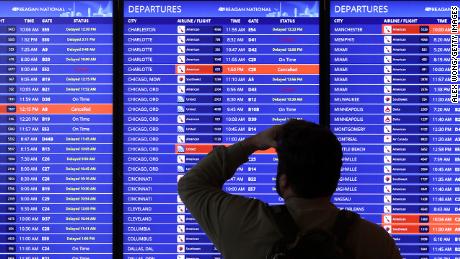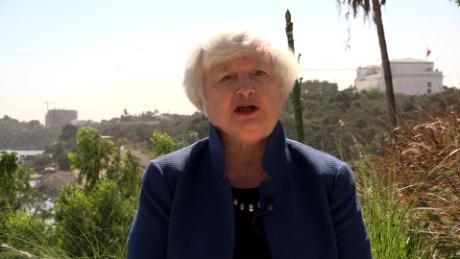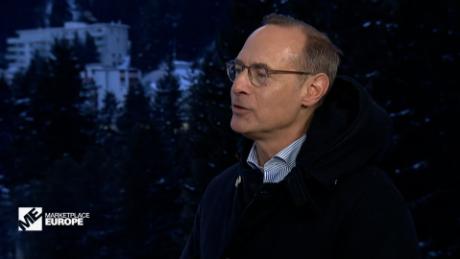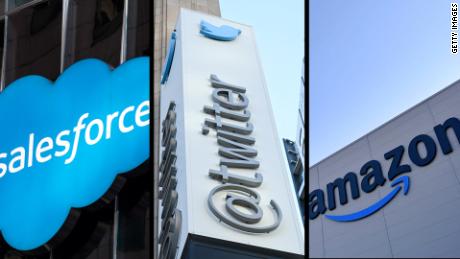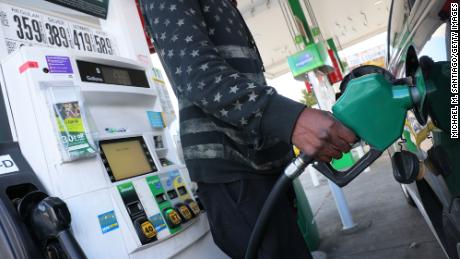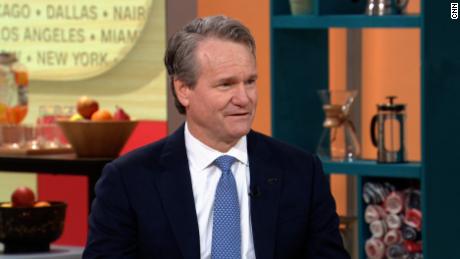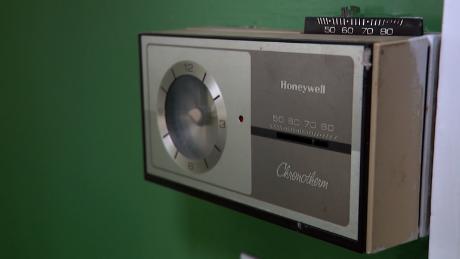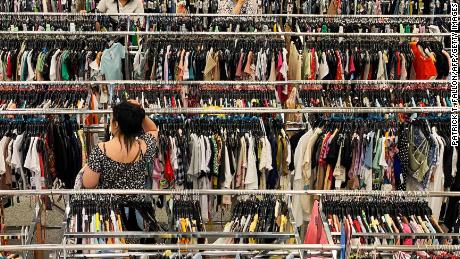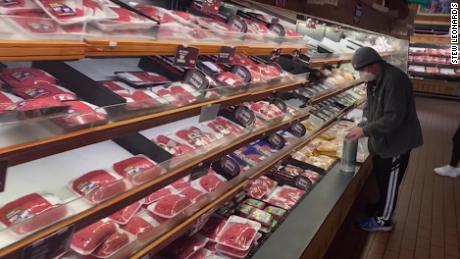New York (CNN Business)Proponents of the 2017 tax law predicted it would set off a wave of spending by American businesses.
It did ŌĆö just not the kind economists hoped for.
Corporate America rewarded investors by rolling out $1 trillion of stock buybacks in 2018. Yet a lasting boom in job-creating investments has yet to materialize.
Business spending on things like factories, software and new equipment jumped in the first quarter after the tax law took effect. But it has decelerated as companies worry about slowing global growth and rising trade tensions.
"There hasn't been a huge surge in response to tax reform," said Eric Zwick, a professor at the University of Chicago Booth School of Business who studies the interaction between public policy and corporate behavior.
Real nonresidential fixed investment increased by just 2.5% in the third quarter, a sharp slowdown compared to 8.7% in the second quarter and 11.5% in the first quarter.
It's not that business spending is weak. It's just not booming.
"It now appears the investment recovery was short-lived," Ethan Harris, global economist at Bank of America Merrill Lynch, wrote in a report last week titled, "The investment boom that wasn't."
More pronounced impact on buybacks
The lack of investment comes despite the fact that the tax overhaul allows businesses to immediately write off the expense of capital spending. The law also gives companies a tax break on repatriated overseas profits.
That's not shocking, according to Ian Shepherdson, chief economist at Pantheon Macroeconomics. Companies were awash with cash before the tax cuts took effect. Capital spending wasn't guaranteed to take off simply because they had more of it.
"History shows that repatriated earnings tend to be spent on buybacks and dividends, Shepherdson told CNN Business, adding that he saw "no evidence at all" that the tax cuts have lifted business spending above what would have happened anyway.
White House economic adviser Kevin Hassett on Wednesday defended the tax plan in an interview with CNN's Poppy Harlow.
He said capital spending was strong in the first half of 2018, though he acknowledged it "started to level off" after that.
"There has been a capital spending boom this year," Hassett said.
The tax cuts appear to have had a more dramatic impact on stock buybacks, which allow companies to return excess cash to shareholders.
While government statistics show that nominal fixed business investment increased just 8.2% through the first three quarters of 2018, announced stock buybacks surged by 71% in 2018 to a record $1.04 trillion, according to TrimTabs Investment Research.
"The tax cut story always seemed overdone," Bank of America's Harris wrote. He added that growth expectations are a "much bigger driver" of business investment than the cost of capital.
Uncertainty, economic concerns rise
The growth outlook has darkened lately. The United States and China, the world's two most important economies, remain mired in a trade war.
China's economy grew last year at the slowest pace since 1990. The IMF downgraded its 2019 growth outlook. And half of all US CFOs fear a 2019 recession in the United States.
"The impact of protracted trade tensions is biting back at home ŌĆö especially on the business investment cycle and manufacturing activity," BlackRock executives wrote in a report published last week.
BlackRock's analysis of capital spending intentions suggests that business investment "slowed sharply" at the end of 2018.
Fourth-quarter numbers on business spending are due to be released January 30 in the Commerce Department's GDP report. But the government shutdown threatens to delay the release of that data.
Political dysfunction in Washington is one of many factors creating enormous uncertainty that could cause businesses to delay investment. Other major question marks include trade policy, Brexit and slowing economic growth.
The global economic policy uncertainty index climbed to a record high in December. The index, which goes back to January 1997, measures how often newspaper articles in 20 major countries contain terms related to the economy, policy and uncertainty.
Oil prices play an outsized role
One big X-factor is the price of oil. Business investment slowed significantly in late 2015 and 2016 as oil prices crashed. And the opposite happened in 2017 as oil prices rebounded.
That makes sense because the shale oil boom has caused US oil production to double over the past decade. The energy industry plays a bigger role in the national economy than in the past.
An analysis published last week by the Wharton School found a strong correlation between higher oil prices and higher business spending across the country.
"Oil prices might even account for most of the increase in the growth rate of investment in 2018," Alexander Arnon, senior analyst at the Penn Wharton Budget Model, wrote in the report.
It's possible that business spending will accelerate meaningfully ŌĆö especially if trade tensions ease, the economy holds up better than feared or oil prices continue to rise.
"I am encouraged about the outlook for business investment spending in 2019," said Gus Faucher, chief economist at PNC. He pointed to healthy increases in business lending by banks.
But even Faucher isn't expecting a dramatic surge inspired by the tax law.
"We're not going to get the huge boom that proponents of the tax cut were discussing," he said.


